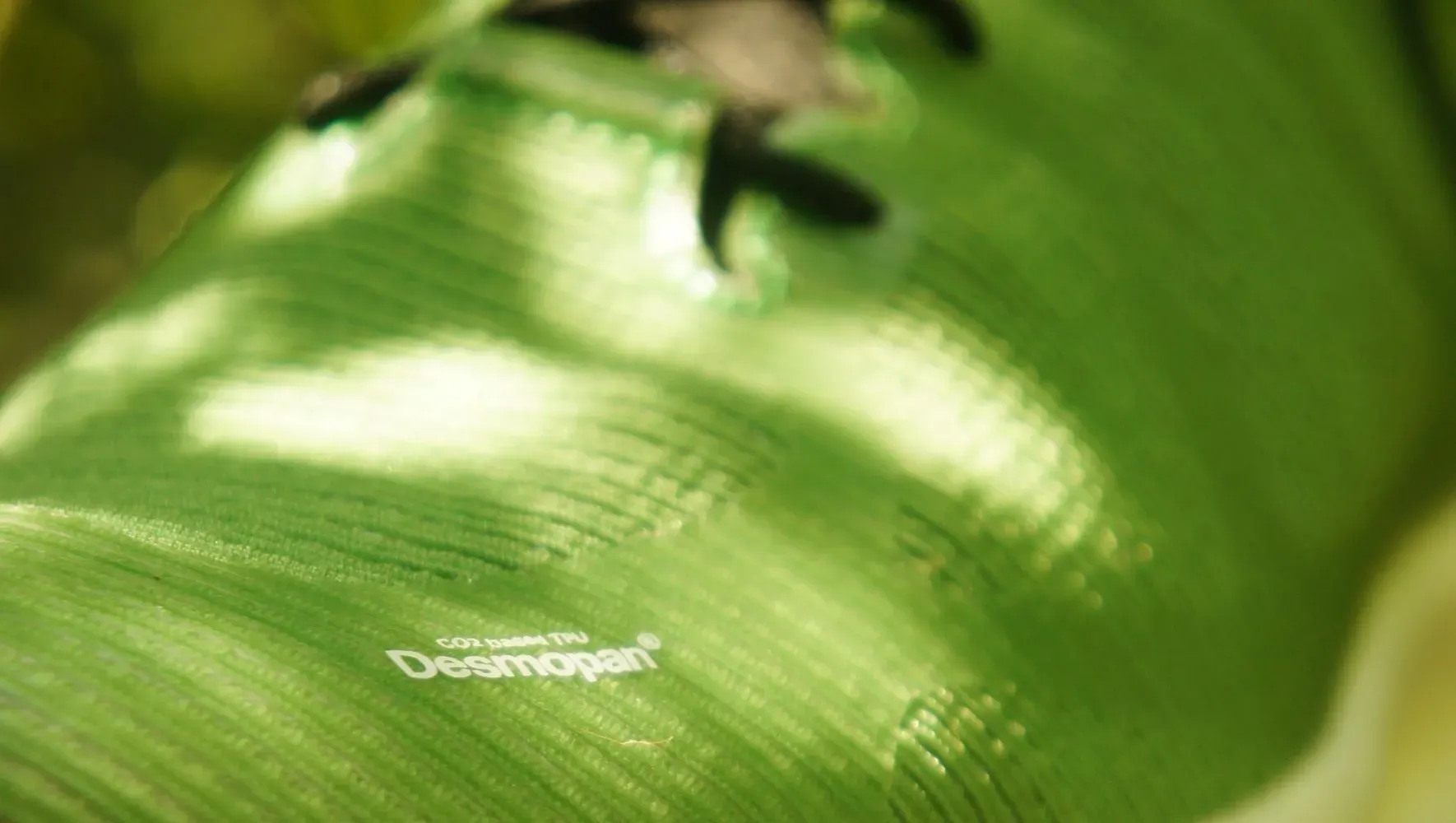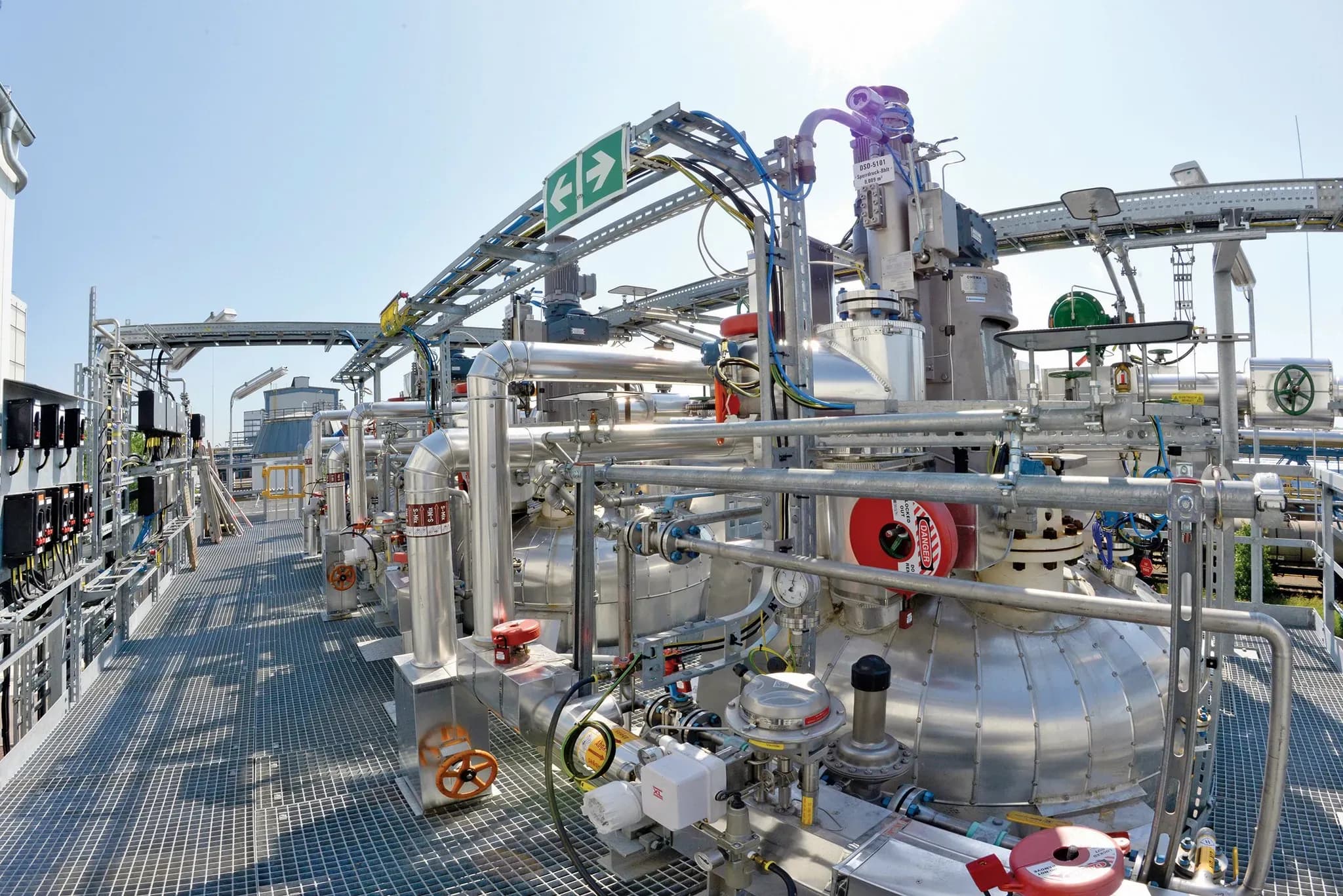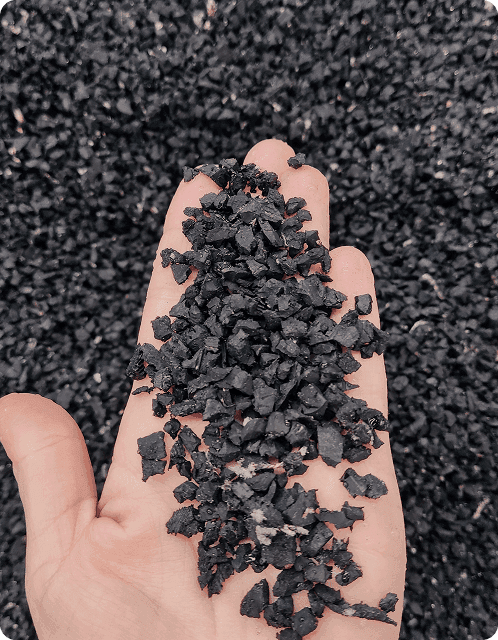The synthetic rubber market is projected to reach $48.17 billion by 2032, comparable to Bahrain's 2024 GDP, as manufacturers respond to pressures to reduce reliance on fossil feedstocks.
Bio-attributed, mass-balance certified, and recycled options are entering commercial production, aiming to lower emissions while maintaining standards for tires, seals, and other applications.
Below is a selection of companies involved in this transition toward circular and bio-based supply chains.
1. Covestro: Developer of bio-based thermoplastic polyurethane
Covestro, a German materials company separated from Bayer in 2015, focuses on polymers using alternative raw materials. Based in Leverkusen, it pursues decarbonization strategies, with goals for climate-neutral operations by 2050, supplying sectors including footwear, electronics, and healthcare.
Desmopan® EC, a bio-based thermoplastic polyurethane, incorporates around 60% renewable carbon, reducing CO₂ emissions by approximately 20% for use in footwear, sports equipment, and electronics.
In 2025, the lineup expanded to include Desmopan® CQ EC 33000 using non-GMO feedstocks for midsoles, Desmopan FLY for supercritical foaming in shoes, and Desmopan® Rx for medical-grade elastomers produced in Taiwan, supporting durability, recyclability, and integration in AI devices, as presented at industry events.

2. Trinseo: Provider of mass-balance certified synthetic rubber
Trinseo, a U.S. materials firm established in 2010 from a Styron divestiture, produces specialty materials with an emphasis on sustainability. Headquartered in Pennsylvania, it allocates 30% of its R&D budget to environmental initiatives by 2025, serving automotive and consumer goods markets with plastics and rubbers.
Its bio-attributed, ISCC PLUS-certified styrene-butadiene rubber, produced at the Schkopau facility in Germany since 2020, substitutes fossil feedstocks through a mass-balance approach for tire treads.
Developments in 2025 include growth in bio-based products, partnerships for circular materials like ALTUGLAS™ R-LIFE™, adjustments to latex pricing amid demand, and communications on reaching 40% eco-friendly products by 2030, even as polycarbonate operations were scaled back.

3. Halcyon Agri: Supplier of natural rubber with sustainability measures
Halcyon Agri, based in Singapore and founded in 2010, operates as a natural rubber supply chain manager. It oversees approximately 150,000 hectares in Africa and Asia, employing 16,000 people to process materials for tires, gloves, and industrial products, with a focus on ethical sourcing.
The HeveaPRO line offers technically specified rubber and latex, processing about 1 million tonnes annually for tires, gloves, and other goods, supported by updated quality controls. In 2025, progress included ESG reporting from 2024, full implementation of traceability in HeveaPRO, and commitments in February to pesticide-free and circular methods, alongside stable share prices at SGD 0.410 despite return-on-equity pressures.
4. Sri Trang Agro-Industry: Integrated producer of natural rubber and gloves
Sri Trang Agro-Industry, established in 1987 in Hat Yai, Thailand, is a major integrated natural rubber and glove manufacturer. It manages 7,200 hectares across 19 provinces with 6,652 employees, emphasizing operational efficiency and R&D for global supply to automotive, healthcare, and industrial sectors
It produces around 2.41 million tonnes of natural rubber annually in forms including technically specified rubber, ribbed smoked sheets, and latex, alongside 55.3 billion gloves for tires, industrial items, and healthcare.
Updates from November 2025 include FSC™ certification for all plantations, the launch of an integrated management service aiming for 2,000 rai by 2026, projections for fourth-quarter recovery following a third-quarter loss, and a 7.1% revenue increase over nine months, backed by 47 innovation initiatives and ISO 14001 standards.
5. Genan: Operator of tire recycling facilities
Genan, a Danish company active since 1990, specializes in processing end-of-life tires from its Copenhagen headquarters. It runs six plants—five in Europe and one in the U.S., converting waste into granulate, powder, and steel for applications in roads, sports surfaces, and new tires.
As the largest tire recycler globally, it repurposes end-of-life tires into recycled carbon black for use in tire treads and sidewalls, replacing virgin materials.
In 2025, activities included the introduction of GENAN ROAD+ PREMIXED as an asphalt modifier, a June 2024 annual report noting record performance and advocating for greater circular adoption, and March collaborations on sustainable surfacing, in line with the tire recycling market's expected growth to $8.92 billion by 2029.

6. Bridgestone Americas: Cultivator of alternative natural rubber sources
Bridgestone Americas, a subsidiary of the Japanese tire company since 1990, provides mobility solutions from its Nashville base. It targets carbon neutrality by 2050, investing in non-hevea rubbers like guayule to broaden sourcing for tires, seals, and industrial products.
Its guayule-derived natural rubber, hypoallergenic and produced at an Arizona pilot facility yielding about 5 tonnes per day, plans for a commercial plant to reach 25,000 tonnes annually by 2027, for tires and related goods.
2025 reports highlight commercialization potential in arid areas, April introductions of guayule-based tires in motorsports, and investments exceeding $100 million toward 2030 sustainable output goals, supported by USDA initiatives.
Rubber & Elastomers: Pathways to Reduced Fossil Dependence
These companies illustrate approaches to decreasing petroleum use in rubber production, extending material lifespans, and establishing verifiable circular systems.
Access the complete analysis of supply chains, specifications, and the bio-rubber shift in the Tocco Report: Rubber & Elastomers 2026 Edition.








